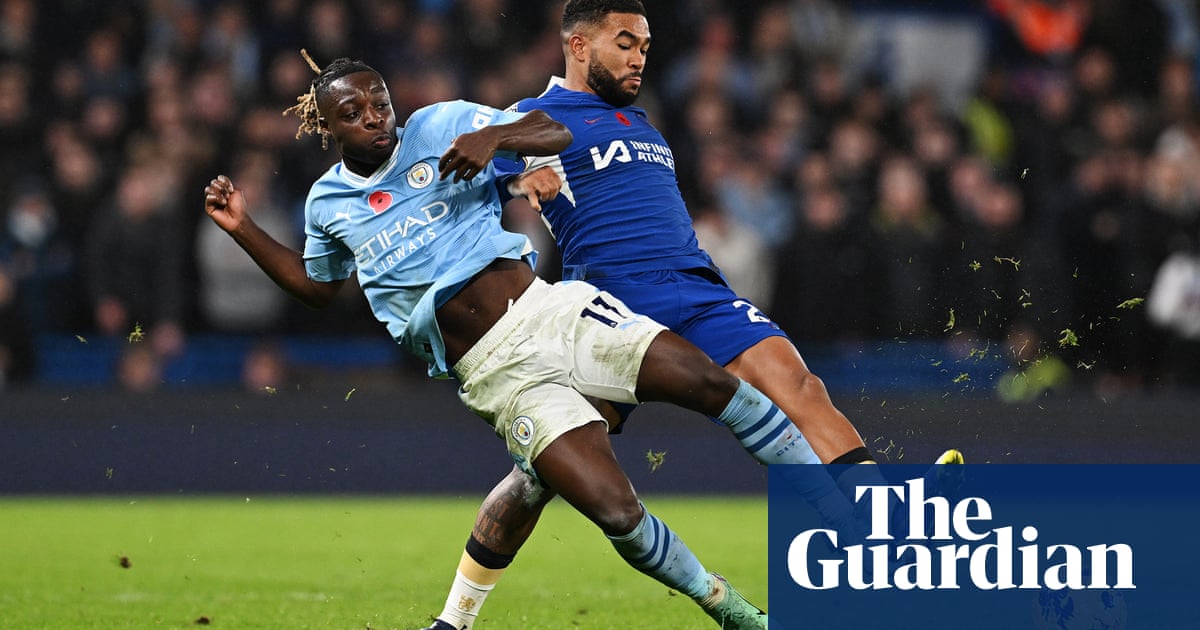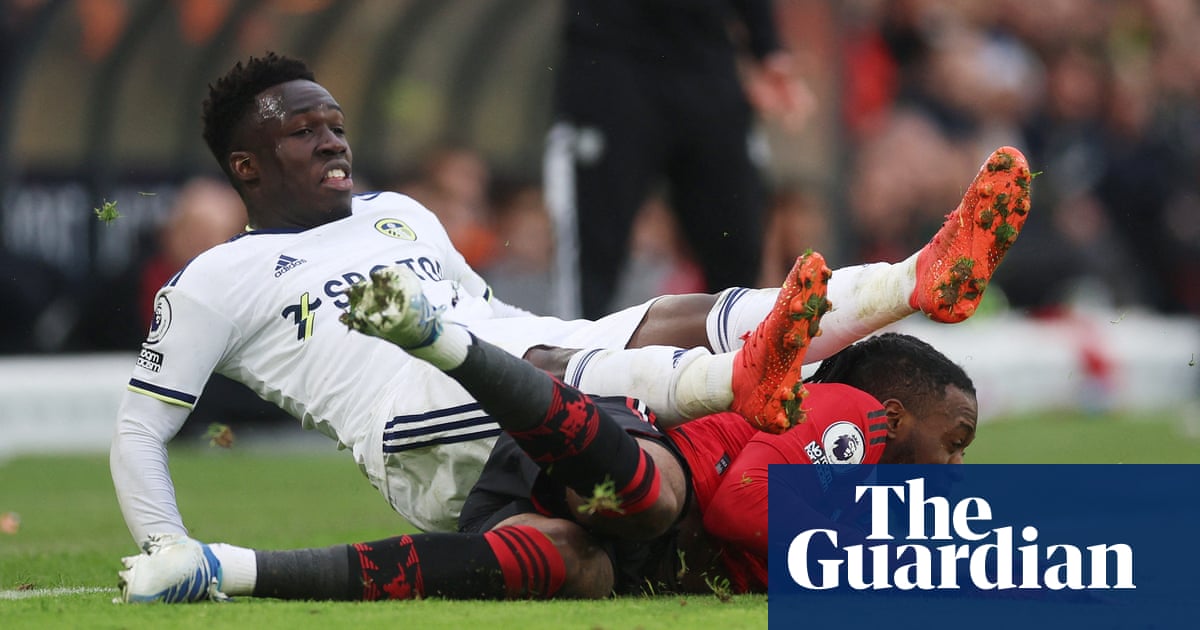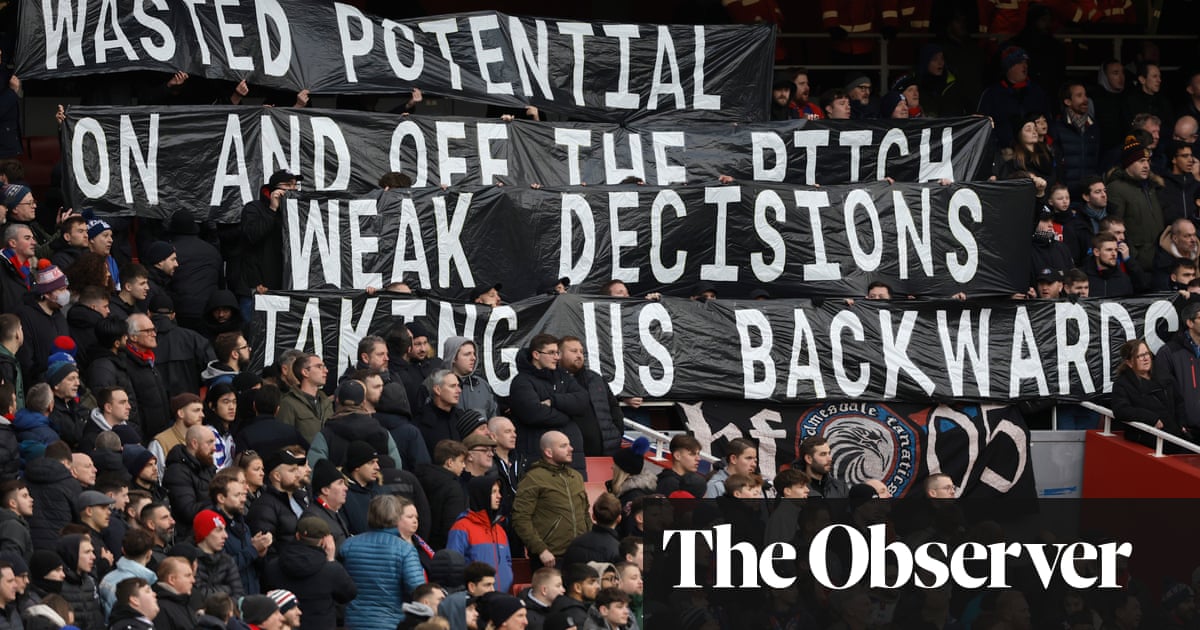
There was a moment’s silence before the start of the game, not that you’d have noticed. Matchdays at Stamford Bridge these days dawn with a curious mixture of fascination and foreboding: roughly akin to the sensation of sitting down in a restaurant that has a 3.3 rating on Google Maps. Nobody really knows what to expect any more. None of the old benchmarks of quality seem to apply. What constitutes success amid the permanent concussion of post-Abramovich Chelsea? Top four? A sense of stylistic progress? An unchanged starting XI?
In this respect, it was tempting to suggest that these 104 minutes of football changed little: for all the thrills and plot twists, the deflections and the chaotic counterattacks and the 20-yard slide tackles in the teeming rain. We knew that Chelsea thrive against opponents who give them space to run into; that they remain barely competent at defending the areas around their penalty box. That they are capable of producing moments of sublime quality and moments of abject calamity, and as you scan the barcode on your ticket you have no idea of knowing which will prevail.
It was a game that defied narrative, a game that both teams led and then neither did, a game you wanted to inhale even as it sucked all the air out of your lungs. And yet by the end, something vital and important had changed here, at least for Chelsea. Perhaps it was the sight of Mauricio Pochettino screaming at the fourth official as the final whistle blew, his eyes wild and dancing, his hair sodden and skewed, as if he had missed the team bus and been forced to swim the last two miles. For much of his time at Chelsea, Pochettino has sought to paint himself as the professional face of this runaway football club, the sanity amid the chaos. Here, instead, he looked like a man finally beginning to feel something again.
And perhaps this was the game when Chelsea finally started to feel something again. Buoyed by the weirdness of their derby win against Tottenham on Monday night, they tore into the champions with a sense of focus and purpose that has been so rare from them this season. A game that began in a subdued and almost eerie quiet ended with the Stamford Bridge roof being blown off its hinges, with a crowd incensed by the refereeing but ultimately thrilled by the spectacle, by the speed and ambition, by the way they kept smashing open a game that Manchester City were trying their hardest to shut down.
They did it by doing what so few teams dare to do against City. So many teams seek safety in numbers, massing numbers behind the ball and taking their chances on the break. Instead Chelsea trusted themselves to win the individual battles, embraced the collisions and duels, tried again and again to dribble their way through the best defence in Europe. Reece James dealt so handily with Jérémy Doku on the right flank that Pep Guardiola was forced to take him off. Enzo Fernández, for all his rich flourishes on the ball, did superbly to neutralise the threat of his international teammate Julián Álvarez. Marc Cucurella held his own against Phil Foden despite playing almost 80 minutes on a yellow card.
And then there was Raheem Sterling. For much of his Chelsea career, Sterling has jogged around the pitch like a man staging a mellow protest at the madness unfolding around him. He no longer makes the England squad. Cole Palmer now takes the penalties. Occasionally Sterling would pop up with a cursory goal against Nottingham Forest or Luton or somebody like that. But quietly, over the past few weeks, some spark of the old ambition seems to have been smouldering within him. This was the game when he finally burst into flames.
Was it the fact that it was his old club? Probably not. But perhaps it was no coincidence that the two players who unlocked City here were those who know how the Guardiola mainframe works. While Sterling ran at Kyle Walker, dragging him inside, Palmer ghosted into the open spaces left behind, wriggling through gaps, taking the ball on the sidestep in the classic Guardiola style. It was Palmer who helped create Sterling’s first-half goal – his first for Chelsea against a top-half club – and Sterling who created the injury-time penalty that Palmer converted.
Occasionally Chelsea would regret their decision to turn the game into an arm wrestle. Cucurella conceded the City penalty by allowing Erling Haaland to steal ahead of him, a place from which there are no good options. The second-phase defending for Manuel Akanji’s equalising goal was a free-for-all. And Moisés Caicedo was partly responsible for City’s third goal, gambling on winning the ball against Haaland and putting himself out of the subsequent phases. These are the errors that will always give opposition teams a sniff.
But the devil here was not in the detail but the design. This was Chelsea finally unleashed as an attacking force, finally beginning to push the outer limits of their potential, finally playing the sort of football that raises the pulse. And this was Stamford Bridge as a fortress, a crowd finally beginning to believe in what it sees, finally beginning to respond. What sort of standard should Chelsea expect from themselves these days? This game, in its own dizzying way, was an answer.












